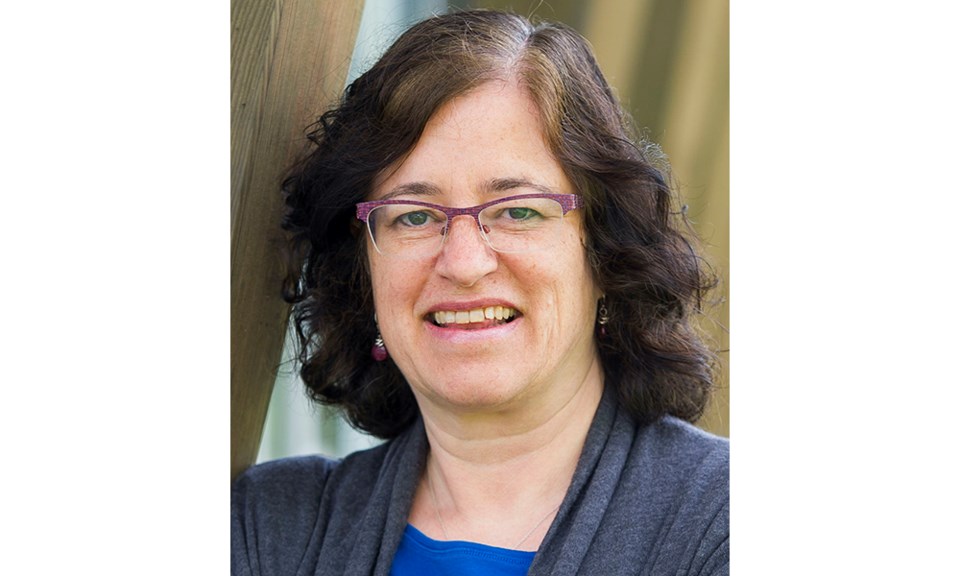Social media has been flexing its power in the early days of 2021, everywhere from political events south of the border to gang-related shootings here in Richmond. With people spending more time online in the pandemic, it’s crucial that parents and schools equip young people with a way to navigate through the morass that is social media, complete with filter bubbles, disinformation, radicalization and recruitment.
U.S. President Donald Trump was permanently suspended from Twitter “due to the risk of further incitement of violence” after the attack on the U.S. Capitol on Jan. 6., the social media platform announced.
Closer to home, when two young men were shot and killed in Richmond, Richmond RCMP Supt. Will Ng was asked by a reporter at a news conference about threats made on social media.
“If Trump can lose his Twitter why not these guys threatening to kill each other on social media?” the reporter asked.
“Great point. They should be shut down, I think we all agree,” Ng responded. “We are aware of these social media accounts … and especially as far as information gathering, they have been very useful.”
Another speaker at the IHIT news conference, Michael LeSage, chief superintendent of the Combined Forces Special Enforcement Unit of BC (CSFEU-BC), said It might take a generation to stop gang violence in B.C.
“We alone are not able to stop gang violence. This will take efforts of everyone – the police, schools, social service agencies, the media and families,” LeSage said.
What can families and schools do to help? How can they make sure children are media literate? How can they give children the knowledge and skills to not be radicalized by social media?
To answer those questions, I asked Jesse Miller, a B.C. social media educator.
Really young kids are digital natives and will be better at distinguishing truth from falsehood online than today’s adults, Miller predicts.
“The TikTok kids are social-media literate,” Miller says. But he recognizes that gang recruitment has been going on for years in Canada and that other groups, like white supremacists or ISIS are also active on social media.
“Parents are usually on the outside looking in because they’re not thinking their kid is going to get wrapped up in something extreme,” Miller said.
The best way to protect kids from misinformation online is to have an open conversation, without judgement.
“You have to make sure you are the safest place for your kids to be talking about any issues related to the Internet,” Miller said. “Parents have to be talking to their kids about their values. If they can’t be the safest place, they have to highlight other adults who their kids can talk to.”
Teachers play an important role, both in being safe adults for children to talk to and for making sure kids can recognize falsehoods or recruitment online.
While it’s important for parents to be aware of their children’s social media use, recruitment can also happen in video games, Miller said.
“We see gang recruitment on video games, but the thing is you also see the conflict. They will find each other in these spaces and they will threaten each other,” Miller said. “They’ll say you killed my guy while playing the game – the next time I see you … that’s like that middle school stuff that turns into a high school beef.”
It’s also important for parents and teachers to watch for other red flags, such as changing behavior, shying away from talking about social media, or connecting with people they don’t want to talk to their parents about, Miller said.
The pandemic isn’t helping the situation, given that people can’t gather in person and are spending more time online. Safe spaces where young people used to gather in person are no longer available and the advocacy programs through the police have also had to move to social media.
So, to avoid what LeSage called the only certainties of gang life – “death, jail, betrayal” – and other social media hazards, have open, frank discussions with your children about your values and the Internet. Make sure it’s safe for them to talk to you, without judgement, if they encounter any challenges. If they don’t feel comfortable talking to you, make sure they have other adults in their lives who they can to talk to. In the end, it all comes down to relationships, so work on them.
Elementary, My Dear.
Welcome to our new education, parenting and social issues column by Tracy Sherlock, a Richmond mom, freelance journalist and former education reporter. Every two weeks she will cover issues ranging from what's happening in schools to the latest in the opioid crisis or how to make sure your kids know how to navigate the Internet. Look for her here every second Saturday. If you have questions, comments or issues you’d like her to cover email her at tracy.sherlock@gmail.com.
Tracy Sherlock also writes about education and social issues on her blog.



